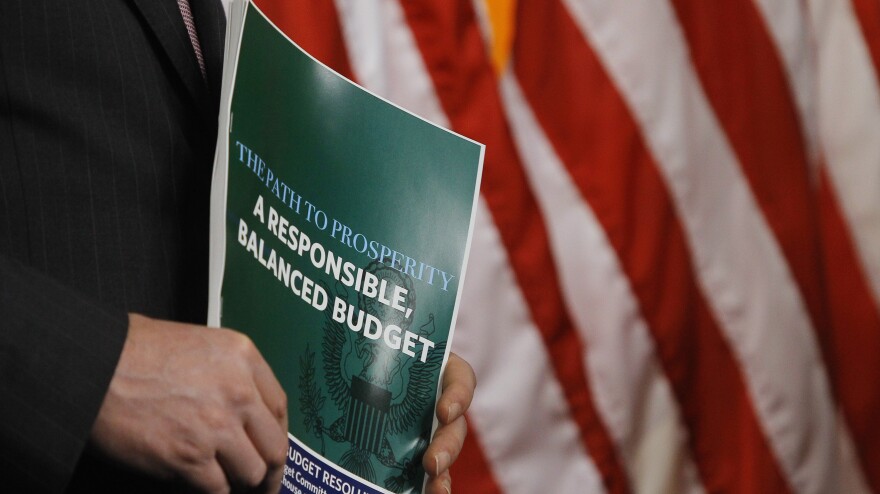In the ongoing Washington budget battles, one word gets more of a workout than most: balanced.
This single word illustrates the vast distance between the parties. Democrats and Republicans are working from very different definitions of the term in discussing their budget proposals being unveiled this week.
What Democrats are saying: A balanced budget is deficit reduction through a mix of tax increases and spending cuts. As in: We want a balanced approach to reducing the deficit.
What Democrats aren't saying: Although a Democratic budget would strike a balance between tax increases and spending cuts — $975 billion of each over 10 years in the plan — it would not eliminate the deficit. That's not the goal of Democrats. Their goal is to stabilize the deficit so that the debt isn't growing faster than the economy. But as President Obama told ABC's George Stephanopoulos on Tuesday, he's not chasing "a balanced budget just for the sake of balance." Instead, the president said his goal is "how do we grow the economy, put people back to work, and if we do that we're going to be bringing in more revenue. If we've controlled spending and we've got a smart entitlement package, then potentially what you have is balance."
What Republicans are saying: A balanced budget is a budget that cuts spending to match revenues, thus eliminating the deficit. As in: Our budget balances in 10 years.
What Republicans aren't saying: The House Republican plan authored by Budget Committee Chairman Paul Ryan projects a balanced budget in a decade, thanks to an improving economy and — notably — tax increases and Medicare savings Republicans decry. For instance, while the GOP House budget proposal calls for the repeal of the president's health care law, it counts on $1 trillion in new revenue over a decade that Obamacare would bring in, as well as the $760 billion in Medicare savings that Ryan campaigned against when he was the vice presidential nominee.
What neither side is saying: We know our "balanced" budgets are dead on arrival. The Democratic version is expected to pass only in the Democratically controlled Senate; the Republican version is expected to pass only in the GOP-controlled House. But neither of these vision documents will actually guide federal policy or government spending. They are markers, position papers, political documents complete with numbers and graphs. If you're an optimist hoping for a big deficit-reduction deal, they're opening offers on the path to a grand bargain. If you're a pessimist or maybe just a realist, they're a sign of the intractable differences between the parties and proof that we'll keep stumbling from one man-made fiscal crisis to the next.
On Message is an occasional feature exploring the language of Washington. Tamara Keith is NPR's congressional correspondent.
Copyright 2021 NPR. To see more, visit https://www.npr.org.



